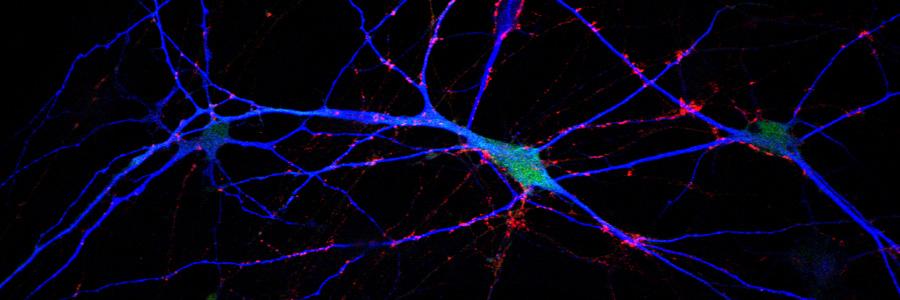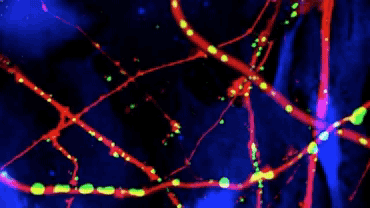Research

The Functional Genomics department studies the presynaptic nerve terminal in health & disease.
The major focus of the department:
Presynaptic function & plasticity
The rapid secretion of chemical signals upon arriving action potentials is the principal function of the nerve terminal. We study the gene network that orchestrates the secretion of classical transmitters from synaptic vesicles and also of neuromodulatory substances from dense core vesicles (see below) in mammalian CNS synapses. We focus on the events that prepare vesicles for fusion: the recruitment of vesicles to their fusion site and their docking/priming.
In addition, we are interested in use-dependent changes in presynaptic function (presynaptic plasticity), especially how modulatory signals and repetitive stimulation change the function of mammalian CNS synapses.
Dense core vesicle biogenesis, trafficking & fusion 
For communication, neurons use two regulated secretory pathways. In addition to fast synaptic signaling using classical transmitters and synaptic vesicles, most neurons secrete modulatory signals such as neuropeptides and trophic factors, from dense core vesicles (DCVs). We study the biogenesis of DCVs at the soma/Golgi, their maturation, trafficking through the cell and final fusion, all at single vesicle resolution in living mammalian CNS neurons in vitro and in vivo.
Molecular mechanisms of neurodegeneration
We study the cellular mechanisms that underlie cell death, especially those related to Tau-spreading/pathology, the Unfolded Protein Response (UPR) and neurodegeneration upon depletion of certain presynaptic proteins (but not others). We are an international reference center for disorders related to STXBP1/Munc18-1 haploinsufficiency (Ohtahara syndrome, see STXBP1/Munc18-1 disorders)